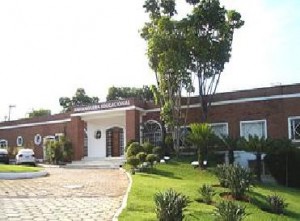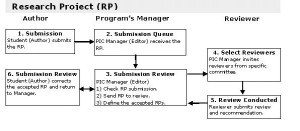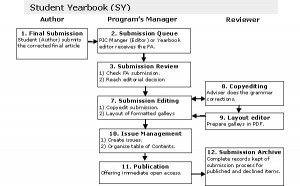
(under her permission)
Presenter: Jeanne Dobgenski, Scientific Initiation Program Manager, Anhanguera Educational S. A.
Friday, July 10, 2009, 9:30 pm-10:30 pm. SFU Harbour Centre. Room 2250
Session Overview

Instituto de Pesquisas Aplicadas e Desenvolvimento Educacional (AESA)
Anhanguera Educational S. A. (AESA) is the largest postsecondary educational institution in Brazil. AESA launched the integration project its Scientific Initiation Program (PIC) and Professor training program (PICD) with Open Journal System (OJS). PIC is for undergraduate student scholarship program dedicated to develop scientific skills with high graduation effectiveness. Students submit their paper through OJS. Then, the PIC manager sorts out documents according to the categories and sends to reviewers. These reviewers are advisors of the students in the same areas. Therefore, the students (authors) can have chance the report to be reviewed by other than their own advisor. 156 authors and 115 reviewers currently enrolled. The reviewers send the papers to the manager again with recommendation for the paper. With this process, the authors have chance to edit their papers and have information how to write a scholarly research-oriented paper.
Following is the workflow chart of the research project process (from Dobgenski with permission):

The PIC operational process is divided into the following 5 stages:
1. Research Project → 2. Partial Report → 3. Partial Article →
4. Final Article (FA) → 5. Student Yearbook (SY)
This whole Anhanguera´s PIC management cycle takes a year. After getting through all the process until stage 5, Student Yearbook is available in OJS.
Following is the workflow chart of the student yearbook process (from Dobgenski with permission):

Dobgenski commented AESA uses OJS not only to gather information but also to give students chance to publish their own research. In that way, the integration PIC program with OJS is very practical since it gives chance students to receive feedback of their writing and also produce their own papers. Undergraduate students used to have a role as an information receiver rather than an information producer, but this program helps students publish their own paper as a producer.
AESA also uses OJS for professors training programs (PICD) of which process is:
1. Professor ask for support/budget by application form
2. Campus Director authorizes the application
3. Application’s form is sent to PICD agency
4. PICD agency analyzes and returns final agreement
5. Professor receives agreement confirmation
6. The process is terminated
The session of Dobgenski showed the practical use how OJS facilitates academic and institutional programs. Dobgenski, a manager of AESA, mentioned through her e-mail the management of documents and users associated with an improvement program could become a quite challenging problem. There are a huge number of specific constraints interrelated with scheduling tasks, publishing rules and norms conformance. It is necessary to adopt computer-aid system to keep track of all the information workflow and to guarantee these constraints satisfaction. OJS was very useful tool to allow the manager to setup a minimal-path procedure for electronic publishing. The OJS web system permits create, manage and interact with a huge community around these programs. In 2009, Anhanguera’s PIC received more than 300 project submissions. The presenter emphasized OJS helps run PIC and PICD programs smoothly with a small number of faculty members (4 professors, 1 computer systems analyst, 1 administration assistant).
The Anhanguera’s experience shows that the OJS software permits a considerable spread community formed by students, professors, researchers, managers and academic decision-makers get organized and integrated to improve these programs.
Related Links
Anhanguera Educational S. A.: http://www.unianhanguera.edu.br/anhanguera/
Open Journal System: http://pkp.sfu.ca/?q=ojs